
Starting June 1st, 2023 Our warehouse fee will be $0.65/cubic foot per month
In effort to lower the warehouse storage fee during inflation, we have went narrow aisle racking.This construction took us four months but the project is finally completed. With narrow aisle racking, we are able to drop storage by 24%.We as partners will go through this inflation together.
10/23/2024
Are you navigating the complexities of shipping and logistics? Welcome to the article of freight brokerage, where expert intermediaries connect businesses with reliable carriers to streamline transportation. Whether you're a small business owner looking for cost-effective shipping solutions or an established company seeking to enhance your logistics strategy, understanding freight brokerage can unlock significant efficiencies.
Discover how a freight broker can save you time, reduce costs, and ensure that your goods arrive safely and on schedule. Dive into Worldcraft Logistics's guide to learn how to leverage freight brokerage for your shipping needs!
Freight brokerage is a distinct segment of the logistics industry focused on coordinating the transportation of goods by connecting shippers with carriers. Unlike freight forwarding, a freight brokerage does not own vehicles or storage facilities. Instead, it acts as an intermediary, similar to a freight marketplace, where shipping orders are matched with reliable carriers, either on a regular or ad hoc basis. In this role, the freight broker serves as the key point of contact for the carrier and is responsible for managing the shipment, including receiving invoices on behalf of the shipper.
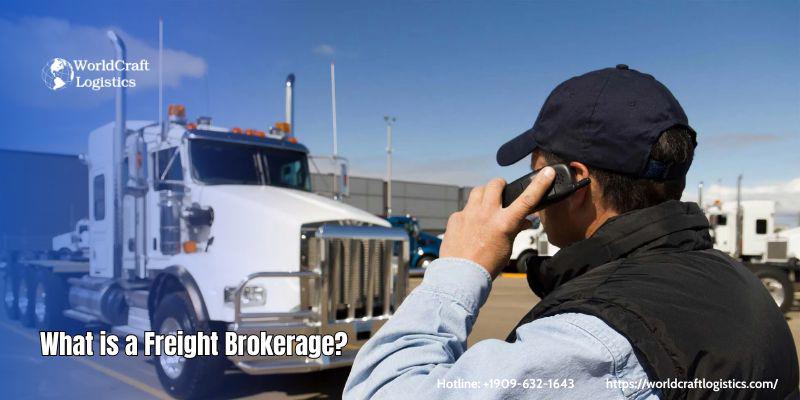
According to the United States Commercial Code (UCC) and regulations from the Federal Motor Carrier Safety Administration (FMCSA), freight brokerage is a distinct business that connects shippers with carriers but does not own vehicles or handle goods. Freight brokers must have a valid broker’s license and a $75,000 surety bond or trust fund agreement. Their role is to negotiate freight rates, arrange transportation, and ensure compliance with safety standards and legal requirements.
Unlike freight forwarders, freight brokers only facilitate agreements and do not take possession of goods. They are responsible for ensuring that carriers meet insurance and liability standards, and invoices are typically addressed to the broker, who then pays the carrier.
Under the UCC, freight brokers must uphold fair and transparent transactions, ensuring all contractual obligations, such as delivery terms and payments, are met, creating a secure and compliant environment for shipping operations.
More articles:
👉 What is Power of Attorney (POA)? Types, Uses, and Benefits
👉 Steps for Inventory Reconciliation: Process, Tips & Techniques
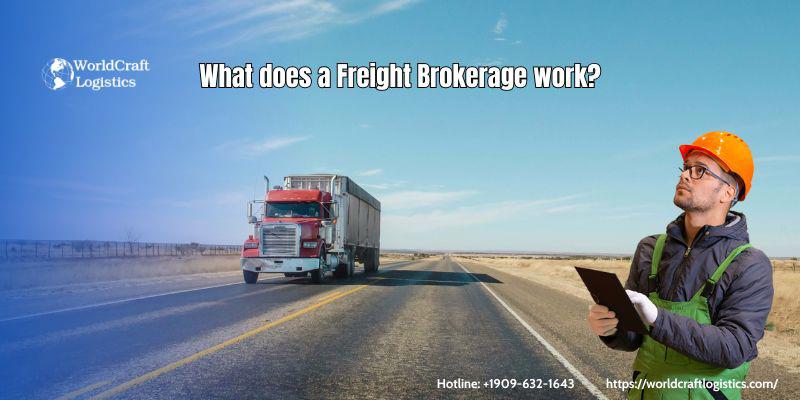
A freight brokerage works as an intermediary between shippers (companies or individuals needing to transport goods) and carriers (trucking companies, rail services, or other transport providers). Its primary role is to coordinate and manage the logistics of moving freight efficiently and cost-effectively. Here’s how a freight brokerage typically operates:
Freight brokers connect with shippers who need to transport goods but may not have the means or expertise to arrange the logistics themselves. Shippers often rely on brokers to access a broad network of carriers, saving them time and money.
Freight brokers have a database of carriers (trucking companies, rail operators, etc.) with whom they regularly work. Brokers vet carriers for safety, reliability, and insurance compliance, ensuring that shippers' goods are in capable hands.
Freight brokers negotiate rates between the shipper and the carrier. They aim to find the best pricing for the shipper while ensuring the carrier is fairly compensated. The broker's profit comes from the difference between what the shipper pays and what the broker pays the carrier, known as the "margin."
Once a deal is finalized, the freight broker arranges the pickup, transit, and delivery of goods. They handle all communications between the shipper and the carrier, providing shipping details, timelines, and special instructions if needed.
Freight brokers use technology, such as transportation management systems (TMS) and GPS tracking, to monitor shipments in real-time. They keep both shippers and carriers informed about the status of the delivery, ensuring smooth operations and timely updates.
Freight brokers handle essential documentation like bills of lading, freight invoices, and any other paperwork needed for the shipment. They ensure that all legal requirements are met, including insurance coverage and compliance with regulations.
In case of delays, damages, or other issues, the freight broker steps in to resolve disputes between the shipper and carrier. They work to find solutions such as re-routing shipments or adjusting delivery schedules to ensure the cargo reaches its destination safely.
Freight brokers act as the payment processor. They invoice the shipper for the agreed-upon cost and, in turn, pay the carrier for their services. The broker retains their margin from this transaction.
In summary, a freight brokerage acts as a bridge between shippers and carriers, handling all logistics, communication, and coordination to ensure goods are transported efficiently without owning any transportation equipment themselves.
Here’s an expanded table with more detailed information about the differences between freight brokers and freight forwarders:
Aspect | Freight Broker | Freight Forwarder |
Definition and Role | Acts as an intermediary between shippers (companies needing to transport goods) and carriers (companies that transport goods). Brokers facilitate transportation arrangements without taking possession of the cargo. | Acts as a comprehensive logistics service provider that manages the entire shipping process, including planning, organizing, and executing transportation on behalf of shippers. |
Ownership of Cargo | Does not take ownership or physical possession of the goods being transported; they simply connect shippers with carriers. | May take physical possession of the cargo, especially in international shipping, acting as the carrier and managing logistics from origin to destination. |
Services Offered | - Connecting shippers with carriers - Negotiating freight rates - Providing tracking and customer service support - Offering insights on market trends and shipping options | - Customs brokerage (handling customs clearance) - Warehousing (storage before shipment) - Consolidation (combining smaller shipments for efficiency) - Managing documentation (bills of lading, export permits) - Insurance services for cargo |
Licensing and Regulation | Must obtain a license from the Federal Motor Carrier Safety Administration (FMCSA) in the U.S. and maintain a surety bond as a guarantee against non-performance. | Requires a freight forwarder license in the U.S. and may need to register with the Federal Maritime Commission (FMC) for ocean freight forwarding, subject to international regulations. |
Payment Structure | Earns a commission, typically based on the freight charges negotiated with carriers; income is often contingent on the volume and frequency of shipments handled. | Charges fees based on the total weight or volume of goods shipped and may include additional charges for specific services like customs handling or warehousing. |
Customer Relationships | Primarily focused on building relationships with both shippers and carriers, acting as a liaison to ensure smooth transactions. | Develops deeper relationships with shippers, often providing tailored logistics solutions and managing multiple aspects of the shipping process. |
Technology Utilization | Utilizes load boards and software to match shippers with carriers, track shipments, and manage communication. | Employs logistics management software to track shipments, manage documentation, optimize routes, and provide comprehensive visibility to clients throughout the shipping process. |
Risk Management | Generally assumes less risk as they do not handle the physical cargo; their primary risk lies in maintaining relationships and ensuring compliance with regulations. | Assumes greater risk by handling the logistics of the cargo and dealing with potential issues like damage, loss, or delays, often offering insurance options for additional coverage. |
Market Focus | Typically focuses on domestic shipments, although some brokers may also operate in international markets. | Often operates in both domestic and international markets, specializing in complex logistics and customs processes for global trade. |
This enhanced table provides a more comprehensive overview of the key differences between freight brokers and freight forwarders, covering various aspects such as customer relationships, technology utilization, risk management, and market focus. This detailed comparison can help businesses better understand which service best fits their shipping needs and how each role contributes to the logistics and transportation industry.

Businesses often need a freight broker when they require efficient transportation of goods but lack the resources or expertise to handle the logistics themselves. Here are some key situations when a business might turn to a freight broker:
Small to medium-sized businesses that do not have an in-house logistics or transportation department often use freight brokers. Brokers help them navigate the complexities of shipping, such as finding reliable carriers, managing schedules, and handling documentation.
Freight brokers have access to a large network of carriers, allowing them to negotiate better rates than a business might get on its own. Businesses use brokers to reduce shipping costs while still ensuring reliable delivery.
Arranging shipments, finding carriers, and negotiating rates can be time-consuming. Businesses that want to focus on their core operations use freight brokers to handle these tasks, saving time and streamlining their supply chain.
When businesses need to move specialized goods (such as oversized loads, hazardous materials, or temperature-sensitive items), a freight broker can find carriers with the right equipment and expertise to handle these shipments safely and efficiently.
Businesses that don’t have established relationships with multiple carriers may struggle to find reliable transportation, especially during high-demand seasons. Freight brokers have established relationships with numerous carriers, ensuring access to capacity even in tight markets.
When businesses experience seasonal peaks or fluctuating demand, they might not need full-time logistics staff. A freight broker provides the flexibility to handle sudden increases in shipping volume without the need for long-term commitments.
Freight brokers stay up-to-date with transportation regulations, such as safety standards, insurance requirements, and legal documentation. Businesses use brokers to ensure their shipments comply with federal and state laws, avoiding fines or delays.
Freight brokers use advanced tracking technology to monitor shipments in real time. Businesses that want to keep their supply chain visible and responsive to changes in transit often rely on brokers for up-to-date tracking and reporting.
Freight brokers help mitigate risks by ensuring carriers are insured, properly licensed, and reliable. They also assist in resolving any issues that may arise, such as damaged goods, delays, or lost shipments.
Managing shipping documents, invoices, and carrier contracts can be overwhelming. Freight brokers handle these administrative tasks, allowing businesses to focus on other aspects of their operations.
In summary, businesses need freight brokers when they require expert handling of their logistics, want to reduce costs, save time, and ensure smooth, reliable transportation of goods without building a full-scale logistics team.
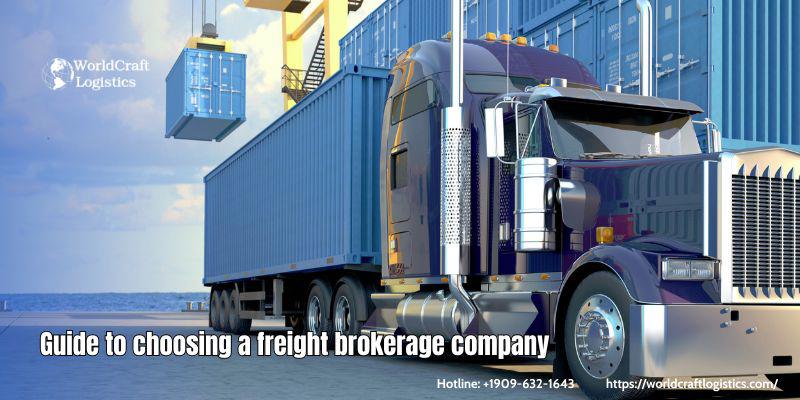
Choosing the right freight brokerage company is crucial for ensuring efficient and reliable transportation of your goods. Here’s a comprehensive guide to help you make an informed decision:
Volume and Frequency: Determine how often you ship goods and the volume of shipments. Some brokers specialize in certain industries or shipment sizes.
Type of Goods: Identify whether your products require special handling (e.g., temperature-sensitive, hazardous materials) or specific types of transportation (e.g., flatbed, refrigerated).
Ensure the freight brokerage is licensed and registered with the Federal Motor Carrier Safety Administration (FMCSA). They should have a valid broker's authority and a USDOT number.
Verify their surety bond or trust fund agreement to ensure they have financial backing to protect your interests.
Look for a broker with experience in your industry or shipping needs. Experienced brokers are more likely to understand the nuances of your requirements.
Read reviews and testimonials from other clients. Websites like Transport Reviews or Google can provide insights into their reputation and service quality.
A strong carrier network is essential for ensuring capacity and flexibility. Ask about the number and types of carriers they work with.
Ensure the brokers vet their carriers for safety, reliability, and compliance with insurance and licensing requirements.
Inquire about the technology they use for tracking shipments, managing logistics, and providing updates. A good freight broker should offer visibility into the shipping process.
Check if they have a Transportation Management System (TMS) for efficient shipment management.
Ask for a detailed breakdown of their pricing structure, including any hidden fees. Understand how they charge (e.g., percentage of freight cost, flat fees).
Compare quotes from multiple brokers to ensure you're getting competitive rates.
Strong customer service is vital for resolving issues and maintaining communication. Assess their responsiveness during your initial inquiries.
Ask about their communication methods (phone, email, online chat) and how they handle problems when they arise.
Ensure the freight brokerage has adequate liability insurance to cover potential losses or damages during transportation.
Understand their claims process and how they handle incidents involving lost or damaged goods.
Discuss how they handle unexpected issues such as delays, accidents, or weather-related disruptions. A reliable broker should have contingency plans in place.
Some freight brokers offer additional services such as warehousing, customs brokerage, and freight consolidation. These can provide added convenience and efficiency.
Meeting with the broker or having a detailed call can help assess their professionalism and willingness to understand your unique needs. Use this opportunity to ask questions and clarify any doubts.
If possible, begin with a small shipment to evaluate their performance before committing to a long-term relationship. This allows you to assess their reliability and service quality firsthand.
Selecting the right freight brokerage company involves careful consideration of your specific needs and the broker’s capabilities. By following this guide, you can make a more informed decision that aligns with your shipping requirements and ensures a smooth logistics process.
Worldcraft Logistics stands out as a leading freight brokerage and forwarding company in the United States, providing exceptional logistics solutions tailored to meet the diverse needs of businesses across various industries. With a commitment to reliability, efficiency, and customer satisfaction, Worldcraft Logistics has established a strong reputation as a trusted partner in the logistics sector.
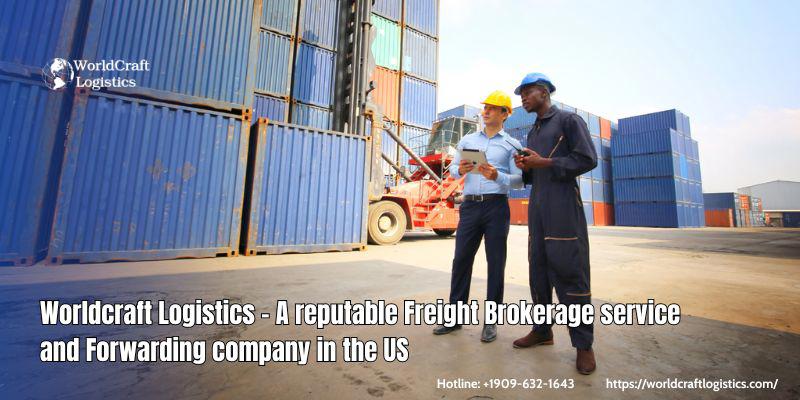
At Worldcraft Logistics, we understand the complexities of modern supply chains. Our freight brokerage services are designed to streamline the shipping process by connecting shippers with a vast network of vetted carriers. We facilitate:
Negotiation of Rates: Leveraging our industry connections, we negotiate competitive rates, ensuring that our clients receive the best value for their transportation needs.
Carrier Selection: Our extensive database of reliable carriers enables us to find the right fit for your shipments, regardless of size or urgency.
Real-Time Tracking: With advanced technology, we provide real-time tracking of shipments, allowing our clients to monitor their goods every step of the way.
As a reputable freight forwarder, Worldcraft Logistics specializes in the coordination and management of international shipments. Our services include:
At Worldcraft Logistics, customer satisfaction is our top priority. Our dedicated team of logistics experts works closely with clients to understand their unique requirements and provide personalized solutions. We pride ourselves on our responsiveness and ability to adapt to changing circumstances, ensuring that your shipments arrive on time and in perfect condition.
Choosing Worldcraft Logistics means partnering with a reputable freight brokerage and forwarding company that prioritizes your shipping needs. With our comprehensive services, industry expertise, and commitment to excellence, we are ready to help you navigate the complexities of logistics and supply chain management. Trust us to be your reliable partner in delivering your goods efficiently and effectively across the United States and beyond.
You can find reputable freight brokers by searching online directories, checking industry associations like the Transportation Intermediaries Association (TIA), or asking for recommendations from other businesses in your industry. Online reviews and testimonials can also help you gauge their reputation and reliability.
Freight brokers typically charge a commission ranging from 10% to 20% of the total freight cost, though this can vary based on factors such as shipment size, distance, and service level. It's essential to clarify the fee structure upfront to avoid any surprises.
Freight brokers handle a wide range of shipments, including full truckloads (FTL), less-than-truckload (LTL), intermodal shipments, oversized cargo, and specialized goods like temperature-sensitive or hazardous materials. Their expertise enables them to manage various logistical challenges.
Yes, many freight brokers specialize in international shipping and can assist with customs clearance, documentation, and coordinating transportation via air, sea, or land. They help navigate the complexities of global logistics and ensure compliance with international regulations.
Freight brokers utilize advanced tracking technology and transportation management systems (TMS) to monitor shipments in real-time. They provide updates to clients through various communication channels, ensuring transparency and timely information regarding the status of their shipments.
SEO
Digital Marketing/SEO Specialist
Simon Mang is an SEO and Digital Marketing expert at Wordcraft Logistics. With many years of experience in the field of digital marketing, he has shaped and built strategies to effectively promote Wordcraft Logistics' online presence. With a deep understanding of the logistics industry, I have shared more than 500 specialized articles on many different topics.
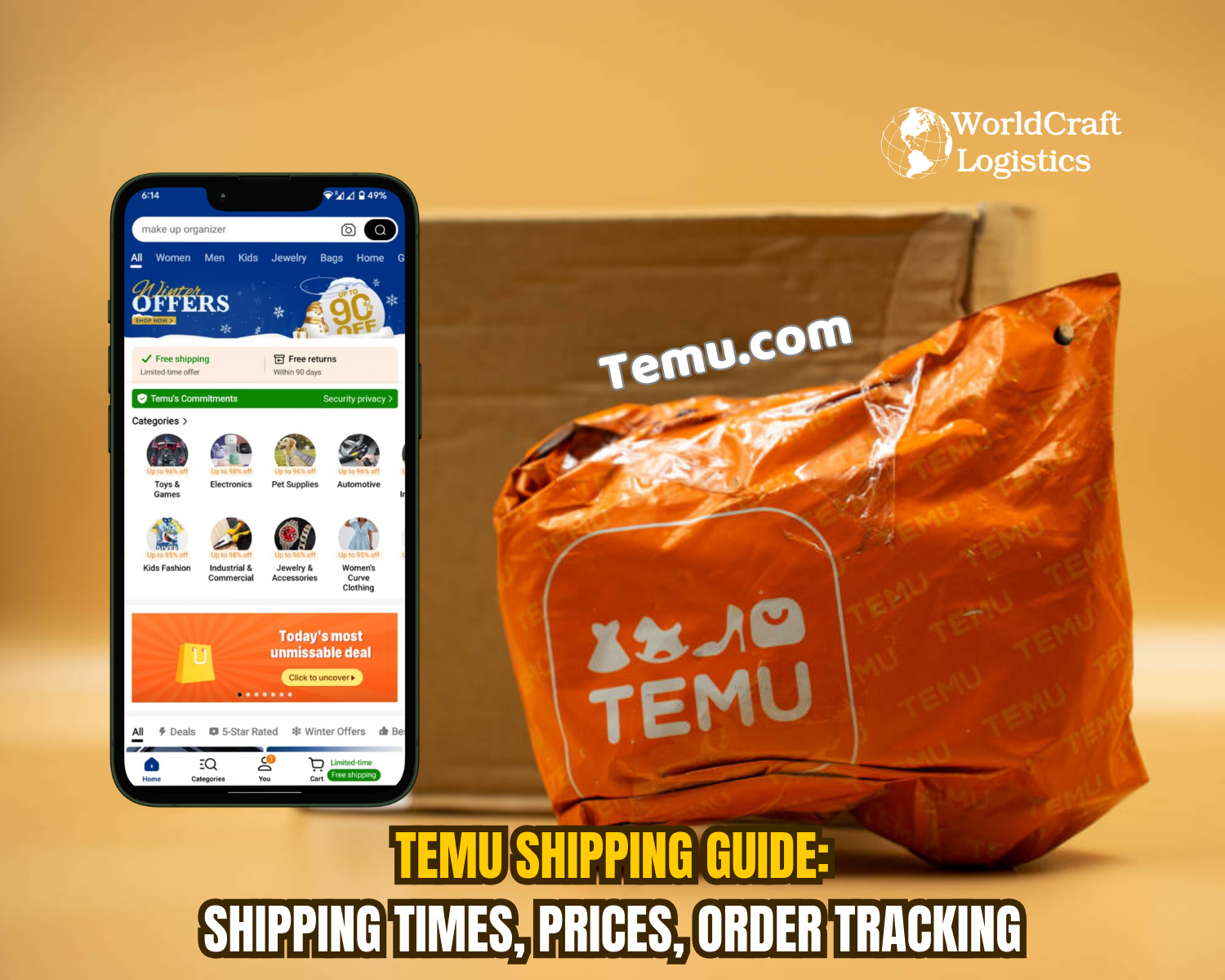
Education
01/05/2025

Education
02/18/2025
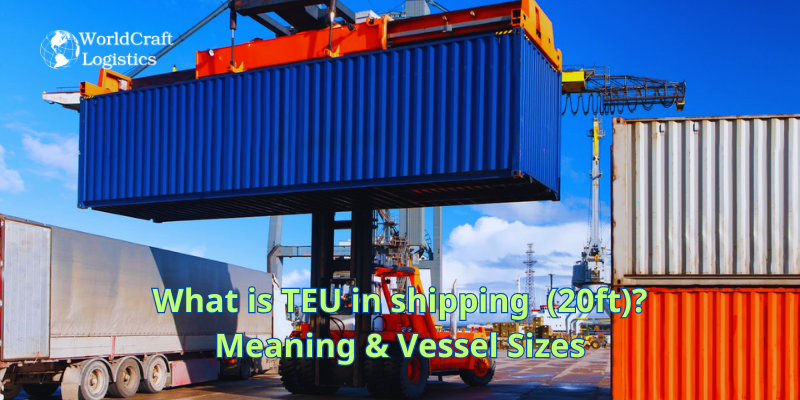
Education
01/01/2024
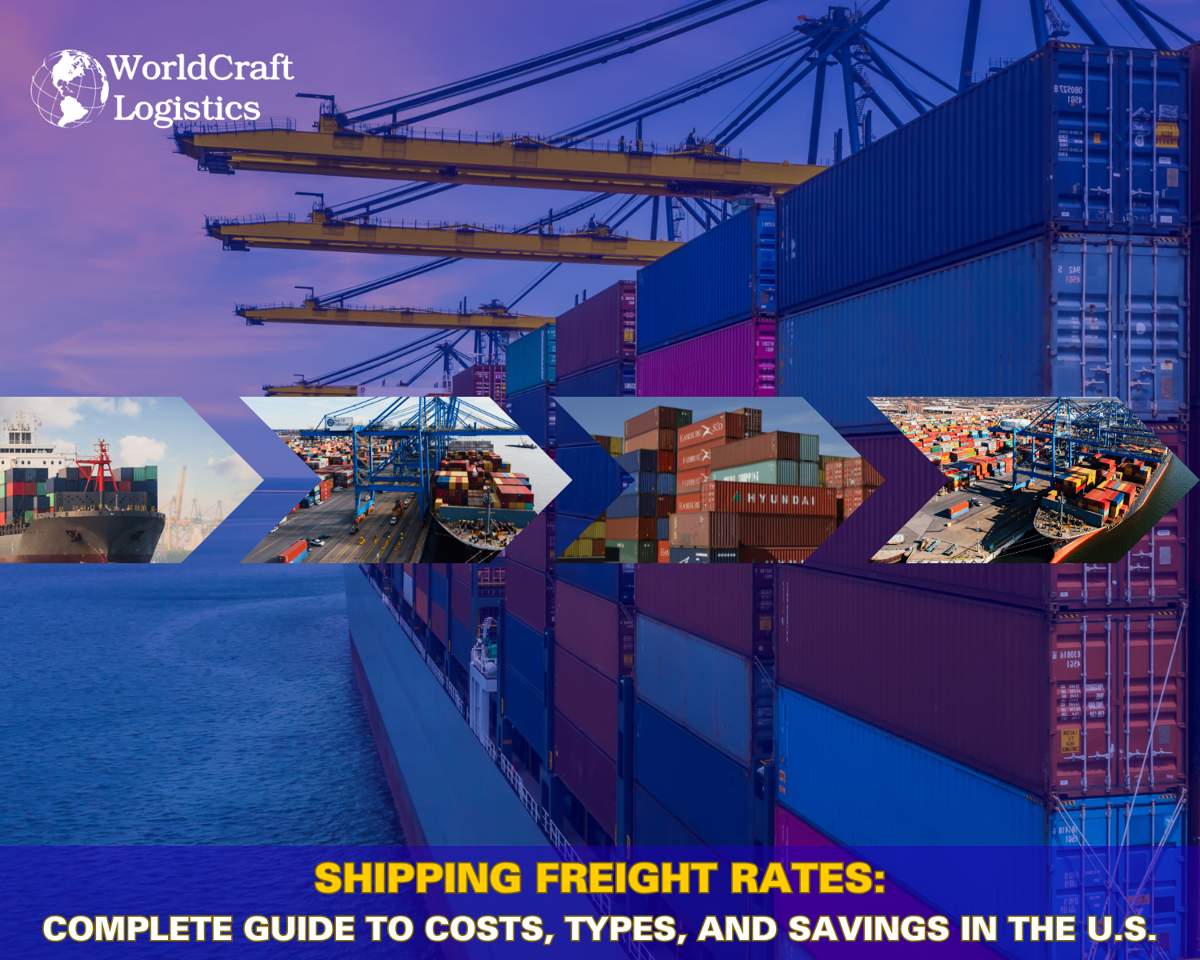
Education
09/09/2025
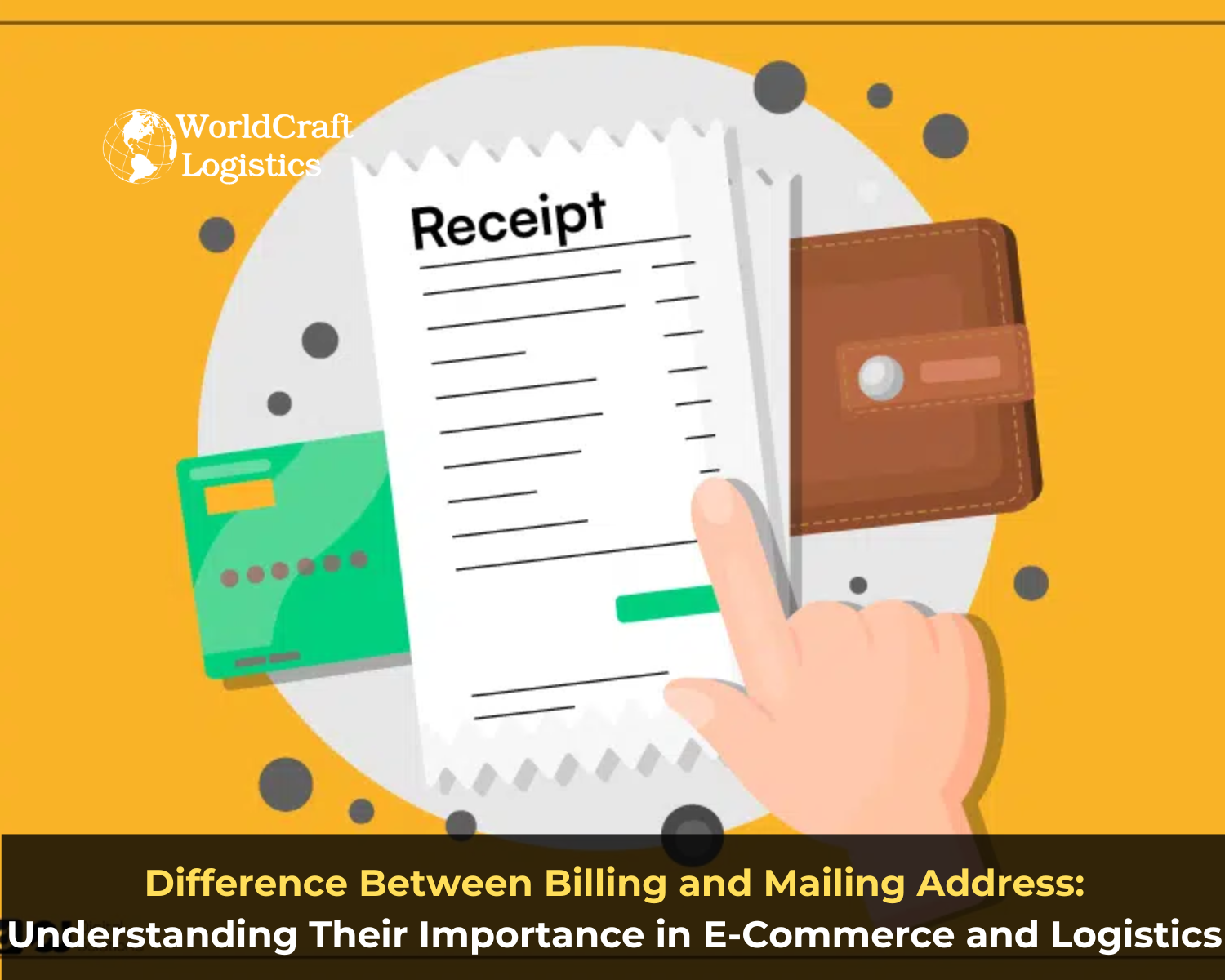
Education
08/28/2024